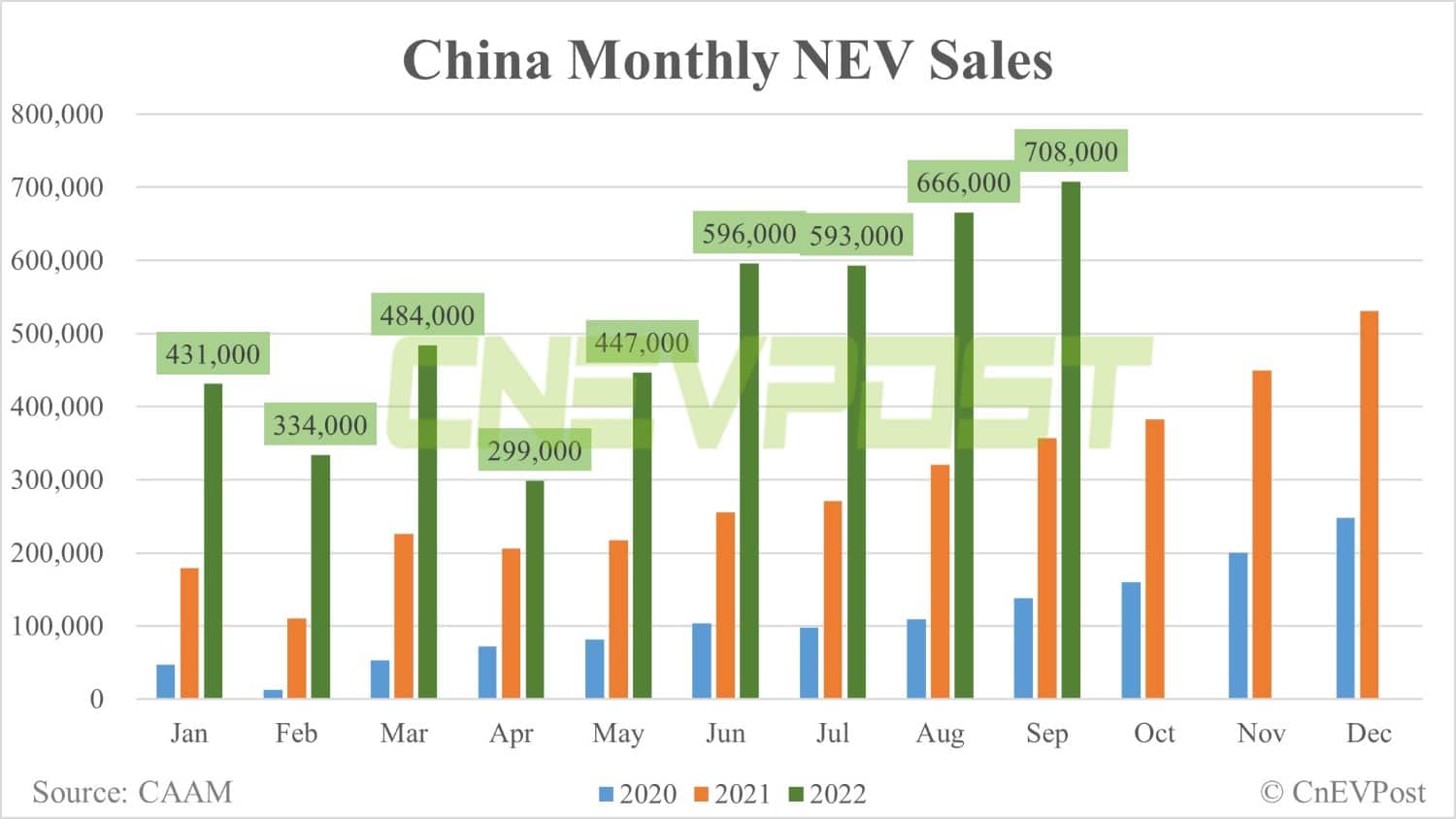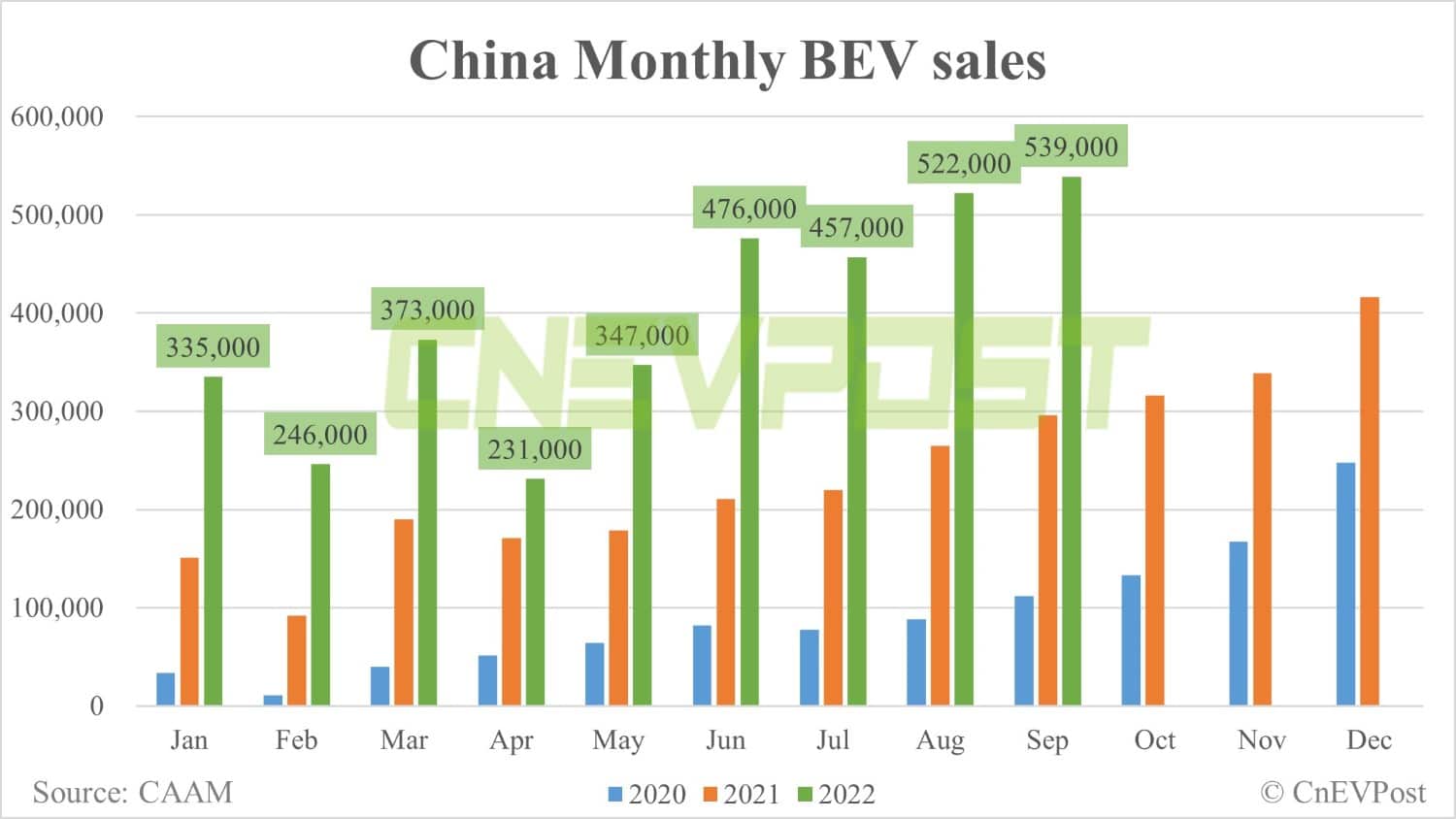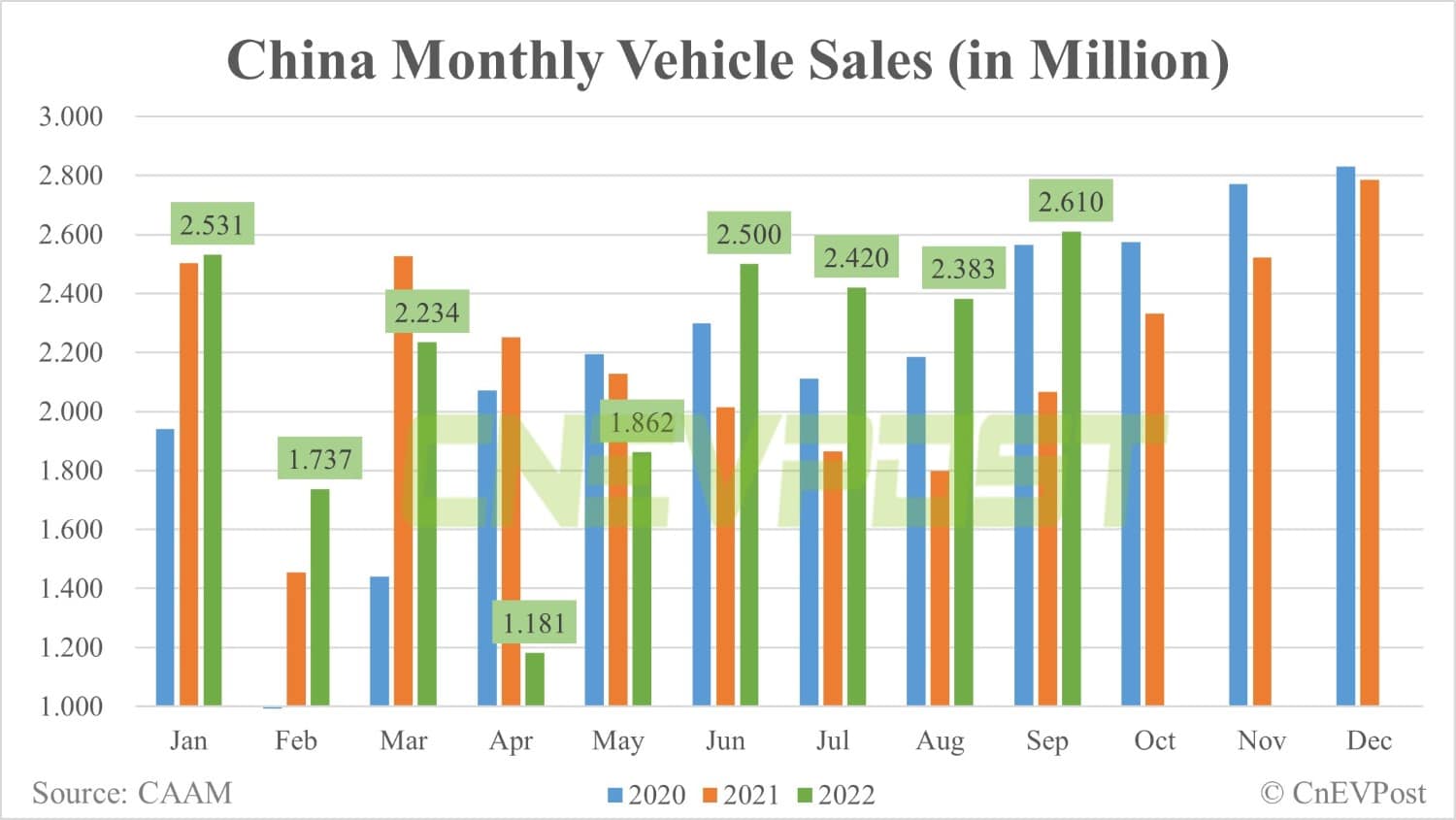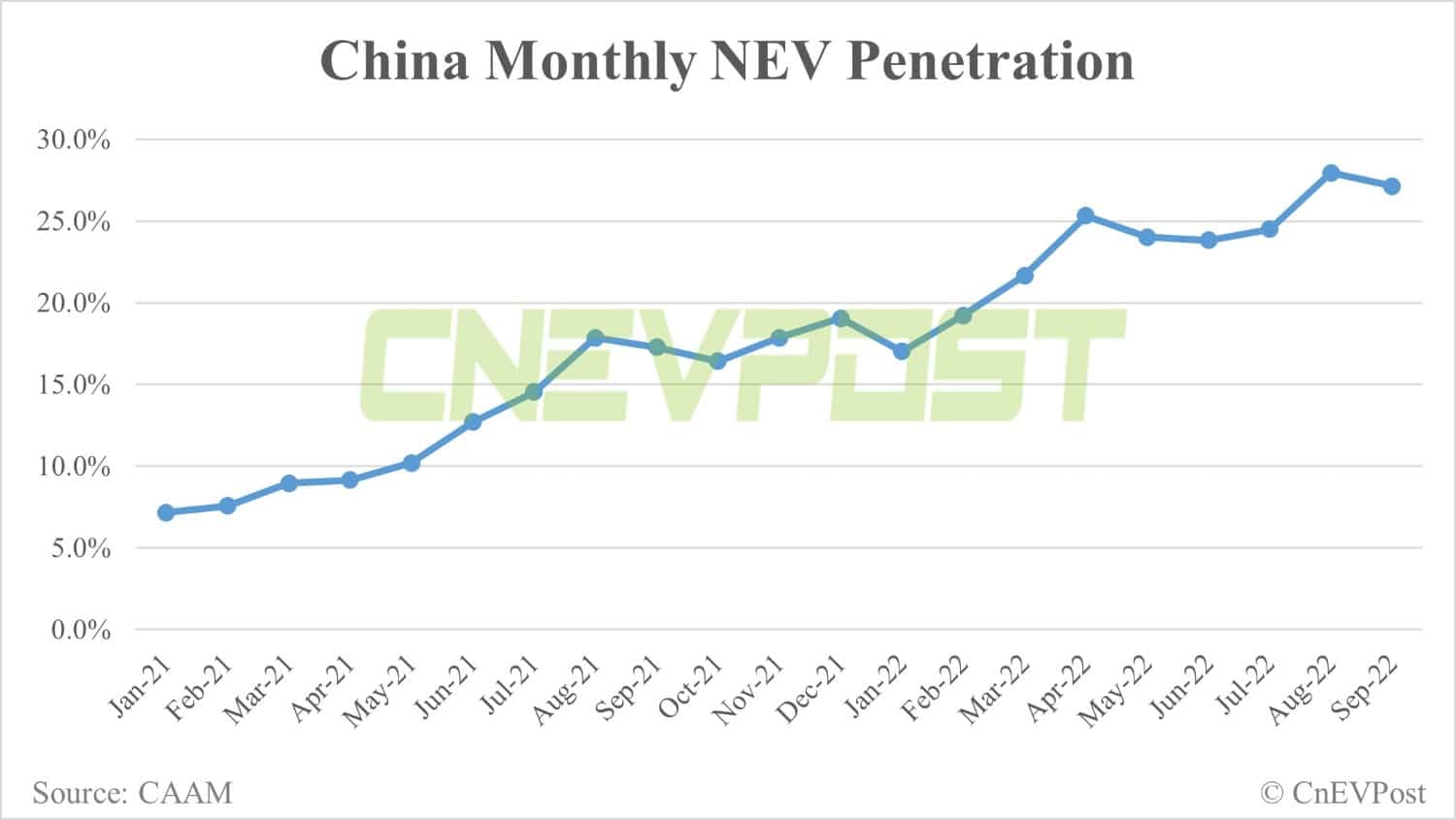BEV sales in September were 539,000 units, up 77.2 percent year-on-year, while PHEV sales were 169,000 units, up 177.5 percent year-on-year.
China's new energy vehicle (NEV) sales reached 708,000 units in September, surpassing the 666,000 units sold in August and setting a new record high, according to data released today by the China Association of Automobile Manufacturers (CAAM).
This represents a 93.9 percent increase over the same month last year and a 6 percent increase over August.
Battery electric vehicle (BEV) sales in September were 539,000 units, up 77.2 percent from a year ago; plug-in hybrid electric vehicle (PHEV)sales were 169,000 units, up 177.5 percent from a year ago; and fuel cell vehicle sales were 200 units, up 16.8 percent from a year ago, according to the CAAM.
China's sales of all vehicles in September were 2.61 million, up 25.7 percent year-on-year and up 9.5 percent from August.
This means that the penetration of NEVs in China was 27.1 percent in September, slightly lower than the record 27.9 percent in August.
From January to September, China's NEV sales were 4.567 million units, up 110 percent year-on-year.
Of these, BEVs sales were 3.578 million units, up 97.9 percent year-on-year, and PHEVs sales were 987,000 units, up 168.9 percent year-on-year.
In the first nine months, China sold 19.47 million units of all vehicles, up 4.4 percent year-on-year.
This means that from January to September, the penetration rate of NEVs in China was 23.5 percent.
In September, 301,000 vehicles were exported from China, down 2.6 percent from August, although it was the second time that 300,000 vehicles were exceeded.
NEVs exported 50,000 units in September, twice as many as in the same month last year, but 40.3 percent less than in August, according to the CAAM.
Driven by China's policies of stabilizing the economy as well as promoting consumption, auto production and sales will maintain rapid growth in the fourth quarter, the CAAM said, adding that the NEV market and auto exports continued a good trend.
However, the foundation of China's economic recovery is still not solid, and the auto market still needs continued policy support, the CAAM said.




